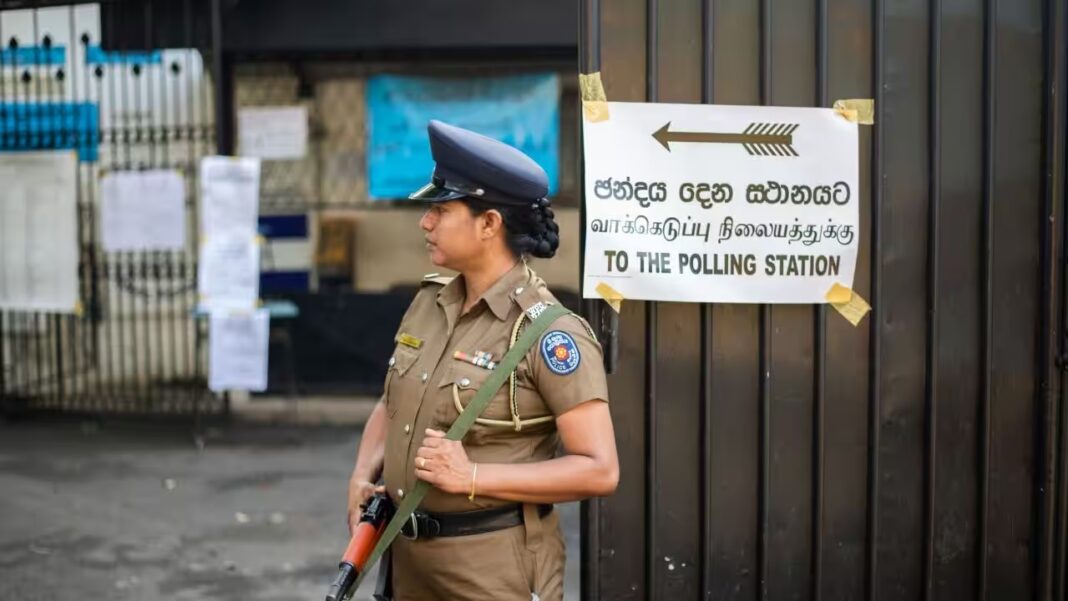“But if the delimitation process is not concluded even if the electoral system is revised by August, it is imperative that this draft bill incorporates an amendment that allows the Election Commission to conduct the polls pursuant to the existing electoral system,” he added.
Hettiarachchi also referred to the past instances where the local government and provincial council elections were compelled to be postponed as a result of the delays in finalizing the delimitation process.
As per a recent Cabinet decision, necessary laws are to be drafted to amend the electoral system to elect 160 MPs directly from the voters of the respective constituencies, also known as the First-Past-the-Post (FPTP) system, and for the remaining 65 MPs to be elected according to the proportional voting system at the national or provincial level.
The government said the need to revise the current electoral system was identified in order to meet the objectives of the Election Expenses Regulation Act No. 3 of 2023 and to achieve a fully democratic election.
Accordingly, a Cabinet sub-committee was appointed to ask the views of all party leaders and other relevant parties representing the Parliament and submit a report to the Cabinet with relevant recommendations.
Suggestions have been presented to the committee to elect 160 MPs directly from the voters of the respective constituencies and the remaining 65 MPs to be elected at the national or provincial level according to the proportional voting system and the agreement of the majority has been received for this, the government said further.
The proposal had been tabled by Minister of Justice, Prison Affairs and Constitutional Reform Wijeyadasa Rajapakshe.
20.03.24
EDITORIAL The Island
Another Trojan horse?
The SLPP-UNP government has suddenly woken up to the need to reform the parliamentary election system. The Cabinet has approved a proposal to that effect. This move has raised many an eyebrow because it has come ahead of the next presidential election due in six or seven months, and amidst speculation that a general election is likely to be conducted either before or immediately after the presidential contest.
Election monitors and the Opposition have expressed fear that the proposed electoral reforms could cause elections to be postponed. Their fears are not unfounded. The government has a history replete with numerous attacks on democracy, and therefore it is only natural that the public tends to take a jaundiced view of everything it does. It is popularly said in this country that even if a dipsomaniac happens to sip a glass of milk, people think he is drinking toddy.
According to what has been reported of the Cabinet decision on electoral reforms, laws will be brought in to elect 160 MPs under the first-past-the-post system and 65 MPs under the Proportional Representation (PR) system. This could be considered a ploy like the one the Yahapalana government used, in 2017, to postpone the Provincial Council elections indefinitely. The Provincial Council Elections (Amendment) Act of 2017 turned out to be a Trojan horse.
Electoral reforms entail long-drawn-out delimitation processes and the attendant issues remain unresolved for years. It will not be possible for a general election to be held until the conclusion of the delimitation process pertaining to the proposed electoral reforms. The People’s Action for Free and Fair Elections (PAFFREL) has warned of the possibility of such a situation coming about. A government that fears elections will do everything in its power to postpone them. The incumbent regime does not care two hoots about public opinion. It caused the local government elections to ‘disappear’ last year.
There is no way the government can postpone the next presidential election, and if anyone other than the candidate fielded or backed by the SLPP happens to secure the presidency, he or she will definitely dissolve Parliament immediately afterwards, causing a general election to be held prematurely. This is a disturbing proposition for both the UNP and the SLPP.
The UNP wants to face a presidential election first; it seems to think its leader President Ranil Wickremesinghe can win the presidency, but the SLPP wants a parliamentary election to be held first because it cannot find a presidential candidate. If the UNP wins the presidency, it will be able to turn itself around electorally and face a general election confidently. The SLPP seems to think it might be able to retain some of the seats it has in the current Parliament if a general election is held before the presidential election.
Let it be repeated that if a candidate representing an Opposition party wins the presidential election and dissolves Parliament, both the SLPP and the UNP will be in serious trouble. Is the Cabinet decision to introduce parliamentary election reforms part of a strategy to postpone the next general election?
The government can allay the people’s suspicions about its intentions if it has nothing to hide. PAFFREL Executive Director Rohana Hettiarachchi has rightly called for the inclusion of a specific clause in the draft bill pertaining to parliamentary election reforms to enable the Election Commission to conduct a general election under the existing PR system in the event of the delimitation process dragging on indefinitely. This is something that the Opposition ought to ratchet up pressure on the government to do. Mere rhetoric won’t do.
Thursday 21st March, 2024 The Island
